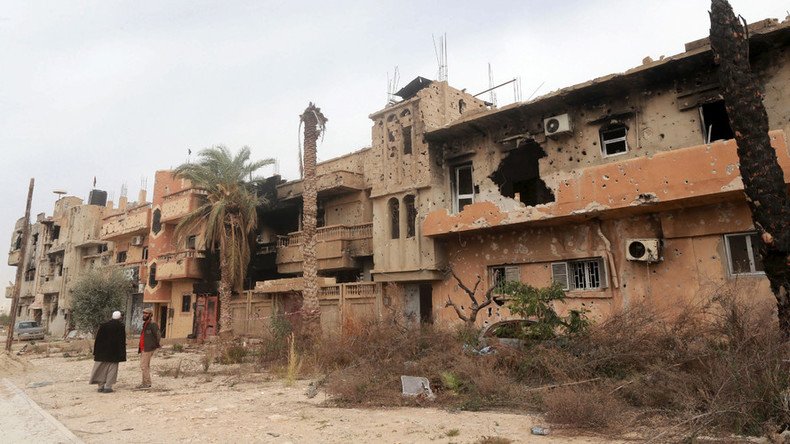UK has moral obligation to resolve Libya ‘mess’ but troops would be seen as ‘invading force’ – Blunt

Britain is morally obliged to help solve the ‘mess’ it left in Libya, but troops would immediately be seen as an ‘invading force,’ according to Foreign Affairs Committee Chairman Crispin Blunt.
Blunt was speaking on Thursday after it was reported the head of Libya’s UN-brokered unity government had arrived in Tripoli.
Fayez Sarraj’s arrival at a naval base in the city triggered threats by militia groups who said he should either leave or give himself up.
Forces opposed to Sarraj in Libya include a second proclaimed government, the Islamist-leaning General National Congress run by Khalifa Ghweil. Ghweil maintains he is the rightful leader of the country.
On Thursday the official EU journal announced a number of political groups who oppose the unity government would be subject to economic sanctions from Friday.
The EU publication said the sanctions would apply to Nouri Abusahmain, Khalifa al-Ghwell and Aguila Saleh: each a leader of one of Libya’s fractious would-be governments.
Blunt backed limited UK military intervention, but said larger deployments would be extremely dangerous.
“Any initiative involving the Green Berets – as opposed to special forces – to expand and train a national Libyan military capacity has value, but not in Tripoli, where UK forces will be targets and look like an invading force,” he told the Guardian.
Blunt said any airstrikes against the Libyan wing of Islamic State (IS, formerly ISI/ISIL) would require parliamentary approval and urged the government to “get over its fear of discussing this with parliament and, if necessary, to seek authorization at the appropriate moment.”
He said a coherent national military should be built and Libya’s central bank must “pay the militias to get out of the military business.”
Besides playing a leading role in the 2011 war, which unseated Colonel Muammar Gaddafi, Britain also agreed to train Libyan military recruits at a Cambridgeshire army barracks.
The initiative ended in disaster and was cancelled in 2014 after numerous cases of misconduct, indiscipline and trials of Libyan recruits for rape and sexual assault.
US President Barack Obama was critical of the UK effort in Libya. He privately referred to the North African state’s collapse as David Cameron’s “shit show,” the Atlantic magazine reported in March.












